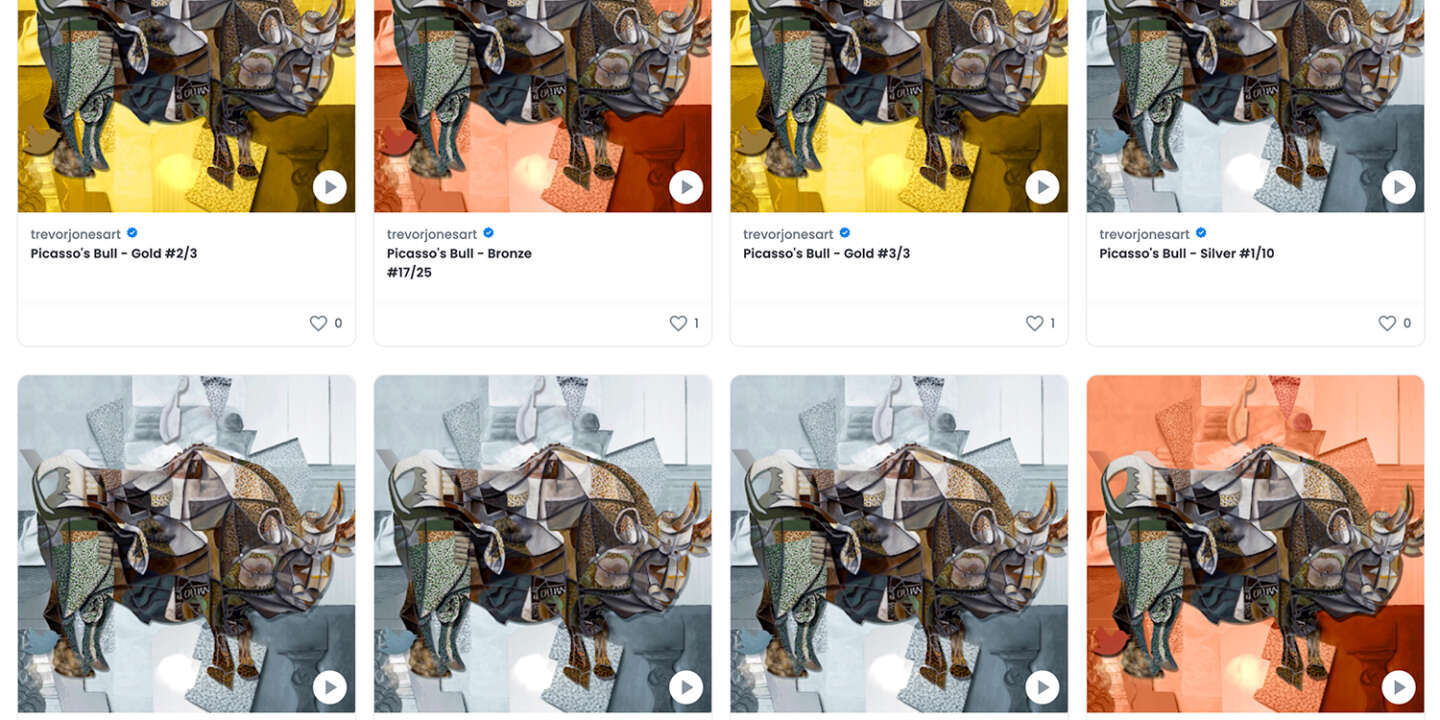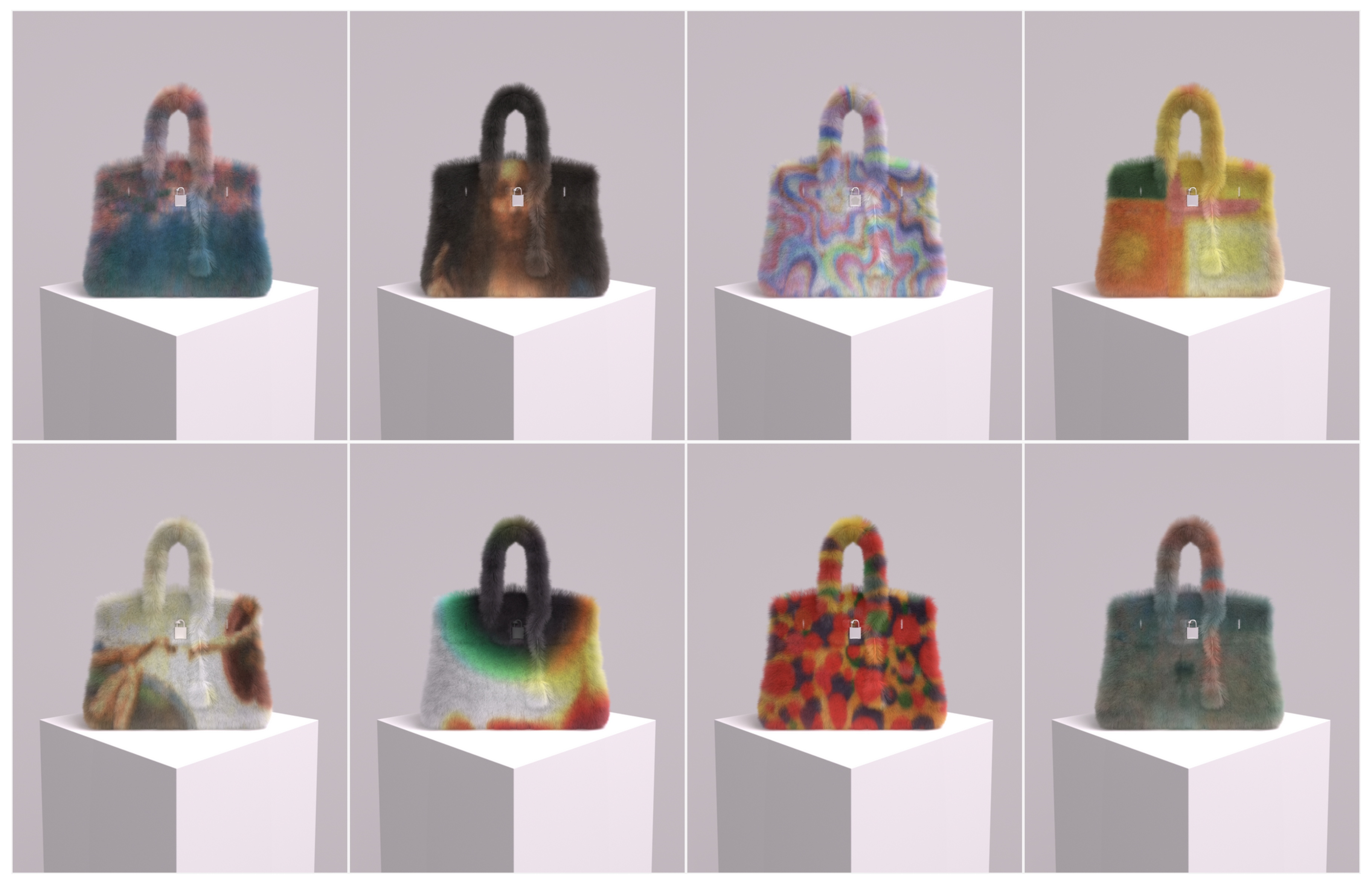[vc_row njt-role=”people-in-the-roles” njt-role-user-roles=”administrator,editor,author,armember”][vc_column][vc_column_text]
The new modern phenomenon of NFTs is sometimes a source of litigation, as it flirts with laws and legislators, who have difficulty understanding these digital assets. On May 31st, a collective of artists has thus warned via the diffusion of a tribune, against the non-respect of the copyright in the field of the digital art.
Since the advent of NFT in recent years, thousands of digital artworks of all kinds have emerged that have benefited brands, luxury houses and artists.
The popularity of NFTs has given rise to a debate about copyright and infringement issues. It is particularly within the art market that disputes related to these two issues have been the most frequent.
Which legislation for cases of copyright infringement?
The virtual art market, which has given rise to original works of art such as those by Beeple or Matt Hall and John Watkinson that have been sold for millions of dollars, is notably the place where many copies of world-famous works of art come to life.

On May 31, a collective of artists warned via the dissemination of a forum, against the non-respect of copyright in the field of digital art. Indeed, on the OpenSea platform, a platform specializing in the sale of NFT, many digital works have been created “in a wild way” by copying pre-existing works of famous artists such as Pablo Picasso, Marc Chagall, Joan Miró and Rene Magritte. “A wild world, deregulated both in terms of intellectual property and tax law,” said Claudia Andrieu, the legal manager of Picasso Administration.
This marketplace had even deliberately assumed it, admitting that 80% of the images transformed into “NFT” that were on its platform were false or stolen.
In November 2021, Picasso Administration had filed a lawsuit against the litigious site Picassol.io for copyright infringement, which offered for sale NFTs of Picasso’s works. The organization won the case, as the fraudulent site has since been blocked and the works removed from the market.

Thierry Maillard, the legal director of the ADAGP, the Society of Authors in the Graphic and Plastic Arts, who is among the signatories of this tribune, said: “We are not against the phenomenon of NFTs, which provide a useful technological response to artists who wish to sell digital works. On the other hand, as the market is not sufficiently regulated and structured, we want to remind the legal framework and call for the responsibility of the creators of NFT, who, when they wish to use the work of another artist, must necessarily ask for permission to do so: these are the very principles of copyright” .
A legislation of the digital art works not very successful
Indeed, as the latter insinuates, the market of the NFT is not yet sufficiently regulated and structured to skillfully prevent and counter the virtual artists who would try to create digital counterfeits of already existing works of known artists.
In reference to the law n°57-298 of March 11, 1957, the author of a work of art, if the latter is considered as bearing the imprint of his personality, is then designated as the author of a work of the mind and original and can, therefore, benefit from the copyright on his work.
It is therefore obvious that an infringement of this protected work, and of any work protected by copyright, is prohibited, but the legislation in the field of NFTs and digital artworks considering this right has not yet been developed enough to be precise enough on this point.
From a legal point of view, the naming of NFTs is also unclear. Often qualified as a digital work, an NFT is not legally considered as such and therefore does not benefit from the tax advantages that accompany it. Moreover, according to article L112-2 of the Intellectual Property Code, non-fungible tokens are not works of the mind, as a painting or a photograph can be. Moreover, they are not considered as valid supports for a work, but simply as a means of access to a digital file.
A copyright is therefore not viable to be affixed on a “digital work of art” , especially since it is always complicated to certify the absolute authenticity of an NFT. Reputedly unfalsifiable because it is hosted on a blockchain, it remains very simple to recover an image of which we are not the author, then to register it on a blockchain to resell it as an NFT.
Luxury houses and NFTs: another area that generates disputes
As for luxury brands and houses, they are also potential victims of the virtual art market. Last January, the French leather goods company Hermès filed a trademark infringement lawsuit against the American virtual artist Mason Rothschild, for creating and selling digital faux fur interpretations of the Hermès Birkin luxury handbags, via the release of a virtual collection of one hundred “MetaBirkins” .

The artist had rejected this action, but the court ruled in favor of Hermès on May 18. While the court found that the use of the term “MetaBirkins” was “artistically relevant”, it noted that the term could be misleading and infringing on Hermès products. As a result, Rotschild may be subject to prosecution by Hermes under the Lanham Act, which regulates the use of trademarks and imposes penalties for trademark infringement.
The courts and legislators are still struggling with the legal consideration of NFTs. Since their arrival, the NFTs have reshuffled the cards of the Law in terms of legislation and counterfeiting of works of art, which insinuates the importance for an artist to protect himself against certain abuses that could occur at the level of copyright. We must therefore expect a potential re-branding of the art market codes in its entirety in the coming years, according to experts, who are already focusing on an ever more profitable NFT business.
Read also > EXPERT OPINION : WHAT LEGAL REGIME FOR LUXURY GOODS IN THE METAVERSE ?
Featured Photo : © OpenSea[/vc_column_text][/vc_column][/vc_row][vc_row njt-role=”not-logged-in”][vc_column][vc_column_text]
The new modern phenomenon of NFTs is sometimes a source of litigation, as it flirts with laws and legislators, who have difficulty understanding these digital assets. On May 31st, a collective of artists has thus warned via the diffusion of a tribune, against the non-respect of the copyright in the field of the digital art.
Since the advent of NFT in recent years, thousands of digital artworks of all kinds have emerged that have benefited brands, luxury houses and artists.
The popularity of NFTs has given rise to a debate about copyright and infringement issues. It is particularly within the art market that disputes related to these two issues have been the most frequent.
Which legislation for cases of copyright infringement?
The virtual art market, which has given rise to original works of art such as those by Beeple or Matt Hall and John Watkinson that have been sold for millions of dollars, is notably the place where many copies of world-famous works of art come to life.

On May 31, a collective of artists warned via the dissemination of a forum, against the non-respect of copyright in the field of digital art. Indeed, on the OpenSea platform, a platform specializing in the sale of NFT, many digital works have been created “in a wild way” by copying pre-existing works of famous artists such as Pablo Picasso, Marc Chagall, Joan Miró and Rene Magritte. “A wild world, deregulated both in terms of intellectual property and tax law,” said Claudia Andrieu, the legal manager of Picasso Administration.
This marketplace had even deliberately assumed it, admitting that 80% of the images transformed into “NFT” that were on its platform were false or stolen.
In November 2021, Picasso Administration had filed a lawsuit against the litigious site Picassol.io for copyright infringement, which offered for sale NFTs of Picasso’s works. The organization won the case, as the fraudulent site has since been blocked and the works removed from the market.
[…][/vc_column_text][vc_cta h2=”This article is reserved for subscribers.” h2_font_container=”tag:h2|font_size:16|text_align:left” h2_use_theme_fonts=”yes” h4=”Subscribe now !” h4_font_container=”tag:h2|font_size:32|text_align:left|line_height:bas” h4_use_theme_fonts=”yes” txt_align=”center” color=”black” add_button=”right” btn_title=”I SUBSCRIBE !” btn_color=”danger” btn_size=”lg” btn_align=”center” use_custom_fonts_h2=”true” use_custom_fonts_h4=”true” btn_button_block=”true” btn_custom_onclick=”true” btn_link=”url:https%3A%2F%2Ftest2023.luxus-plus.com%2Fen%2Fsubscriptions-and-newsletter-special-offer-valid-until-september-30-2020-2-2%2F”]Get unlimited access to all articles and live a new reading experience, preview contents, exclusive newsletters…
Already have an account ? Please log in.
[/vc_cta][vc_column_text]Featured photo : © Maison LELIEUR[/vc_column_text][/vc_column][/vc_row][vc_row njt-role=”people-in-the-roles” njt-role-user-roles=”subscriber,customer”][vc_column][vc_column_text]
The new modern phenomenon of NFTs is sometimes a source of litigation, as it flirts with laws and legislators, who have difficulty understanding these digital assets. On May 31st, a collective of artists has thus warned via the diffusion of a tribune, against the non-respect of the copyright in the field of the digital art.
Since the advent of NFT in recent years, thousands of digital artworks of all kinds have emerged that have benefited brands, luxury houses and artists.
The popularity of NFTs has given rise to a debate about copyright and infringement issues. It is particularly within the art market that disputes related to these two issues have been the most frequent.
Which legislation for cases of copyright infringement?
The virtual art market, which has given rise to original works of art such as those by Beeple or Matt Hall and John Watkinson that have been sold for millions of dollars, is notably the place where many copies of world-famous works of art come to life.

On May 31, a collective of artists warned via the dissemination of a forum, against the non-respect of copyright in the field of digital art. Indeed, on the OpenSea platform, a platform specializing in the sale of NFT, many digital works have been created “in a wild way” by copying pre-existing works of famous artists such as Pablo Picasso, Marc Chagall, Joan Miró and Rene Magritte. “A wild world, deregulated both in terms of intellectual property and tax law,” said Claudia Andrieu, the legal manager of Picasso Administration.
This marketplace had even deliberately assumed it, admitting that 80% of the images transformed into “NFT” that were on its platform were false or stolen.
In November 2021, Picasso Administration had filed a lawsuit against the litigious site Picassol.io for copyright infringement, which offered for sale NFTs of Picasso’s works. The organization won the case, as the fraudulent site has since been blocked and the works removed from the market.
[…][/vc_column_text][vc_cta h2=”This article is reserved for subscribers.” h2_font_container=”tag:h2|font_size:16|text_align:left” h2_use_theme_fonts=”yes” h4=”Subscribe now !” h4_font_container=”tag:h2|font_size:32|text_align:left|line_height:bas” h4_use_theme_fonts=”yes” txt_align=”center” color=”black” add_button=”right” btn_title=”I SUBSCRIBE !” btn_color=”danger” btn_size=”lg” btn_align=”center” use_custom_fonts_h2=”true” use_custom_fonts_h4=”true” btn_button_block=”true” btn_custom_onclick=”true” btn_link=”url:https%3A%2F%2Ftest2023.luxus-plus.com%2Fen%2Fsubscriptions-and-newsletter-special-offer-valid-until-september-30-2020-2-2%2F”]Get unlimited access to all articles and live a new reading experience, preview contents, exclusive newsletters…
Already have an account ? Please log in.
[/vc_cta][vc_column_text]Featured photo : © OpenSea[/vc_column_text][/vc_column][/vc_row][vc_row njt-role=”people-in-the-roles” njt-role-user-roles=”subscriber,customer”][vc_column][vc_column_text]








